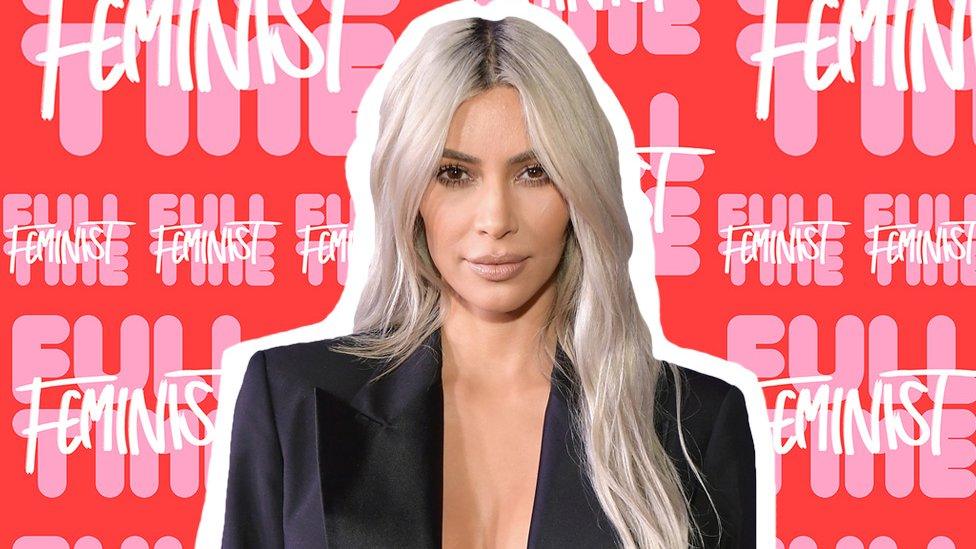Why is Khloe Kardashian's latest campaign 'problematic'?
- Published
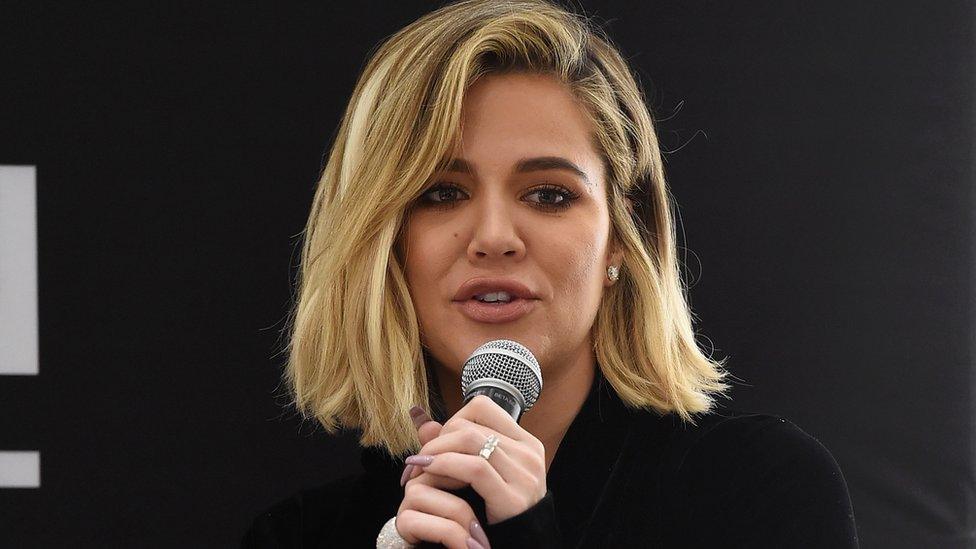
Khloe Kardashian launched the 'Khlo C-D' week on her app
Killer selfies and carefully constructed social media profiles are the very currency of the Kardashians.
However, youngest sister Khloe's latest campaign - "Khlo-C-D" - has faced an online backlash from fans.
The week-long series, which promises "lazy-girl hacks for cleaning everyday objects" has been criticised for making light of OCD rather than highlighting the true characteristics of the mental illness.
Rich Taylor, obsessive-compulsive disorder sufferer and campaigner, says Khloe's campaign "makes me despair".
"What do you have to do to get people to realise its not quirky or just about cleaning up?" he tells the BBC.
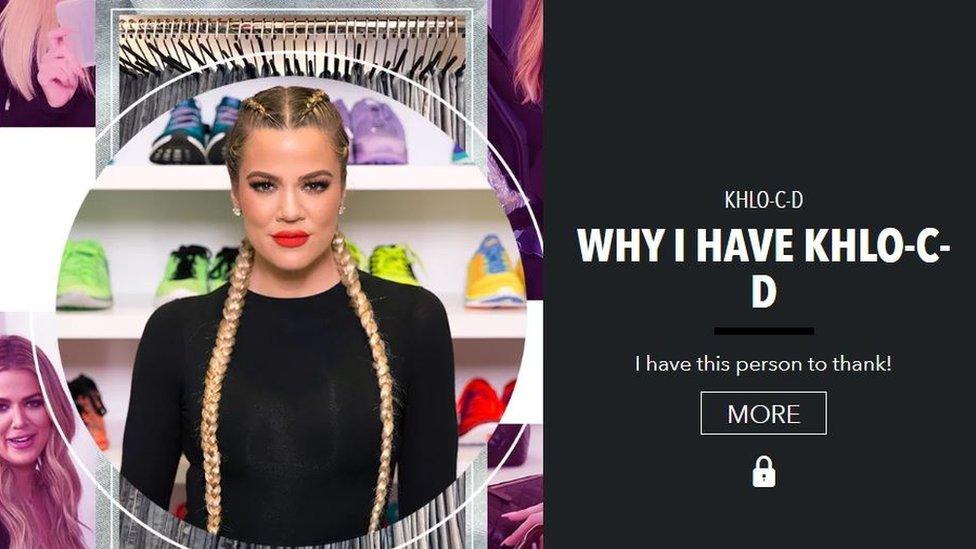
A link to an article on Khloe's official website
"It's a debilitating illness which has robbed me of years of my life when I should have been working and enjoying myself.
Rich added that the series of articles and videos offering advice on how to organise your home does nothing to dispel existing beliefs on OCD.
"For someone to use it flippantly for engagement online is abhorrent."
But he acknowledges that Khloe is far from the first to use the term flippantly, adding: "This is a global thing that's happened for so many years."
OCD is defined, external as a "serious anxiety-related condition where a person experiences frequent intrusive and unwelcome obsessive thoughts, often followed by repetitive compulsions, impulses or urges".
Allow X content?
This article contains content provided by X. We ask for your permission before anything is loaded, as they may be using cookies and other technologies. You may want to read X’s cookie policy, external and privacy policy, external before accepting. To view this content choose ‘accept and continue’.
Mental health and lifestyle blogger Vix Meldrew, who counts herself as a big Kardashian fan, says the campaign is simply "a case of ignorance" towards the illness.
"2018 so far has been a year for high profile women using their platform to speak about loving yourself and empowerment and Khloe's coming up with trivial content instead."
Vix says she is disappointed in Khloe because she first used the phrase "Khlo-C-D" in an episode of Keeping up with the Kardashians in 2015 and is still referencing it three years later.
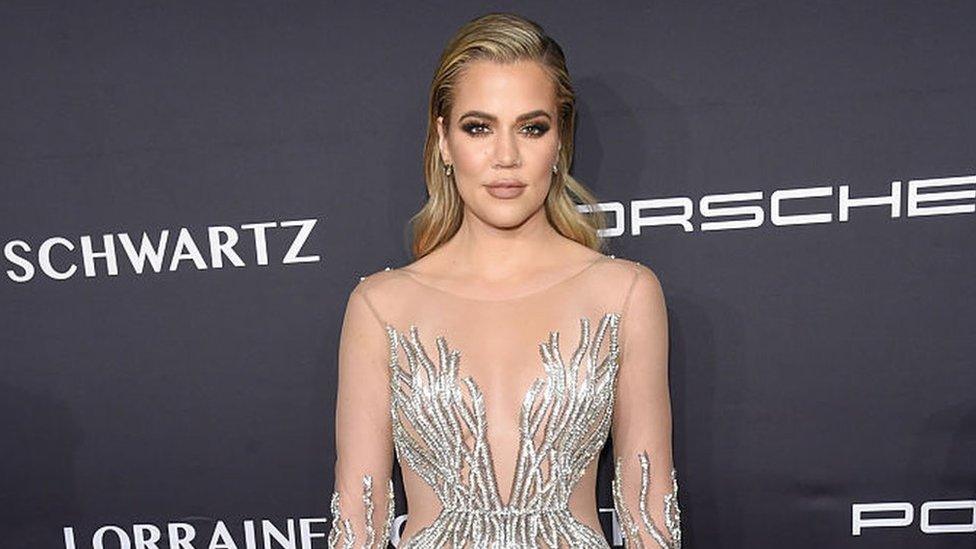
Khloe Kardashian previously used the term 'Khlo C-D' in 2015
"After that episode she must have had people reaching out to her or people telling her not to use that term," she says.
"I love the TV show and have been happy to see the Kardashians take on social issues on homelessness and Hurricane Katrina.
"They use their episodes to highlight social issues so this is even more disappointing - they should know better."
Allow X content?
This article contains content provided by X. We ask for your permission before anything is loaded, as they may be using cookies and other technologies. You may want to read X’s cookie policy, external and privacy policy, external before accepting. To view this content choose ‘accept and continue’.
Allow X content?
This article contains content provided by X. We ask for your permission before anything is loaded, as they may be using cookies and other technologies. You may want to read X’s cookie policy, external and privacy policy, external before accepting. To view this content choose ‘accept and continue’.
Ellen Scott, who suffers from OCD, wrote her own personal response, external to "Khlo-C-D" as part of her series on mental health for Metro.
She says that generally the Kardashians are good at apologising for various controversies, including Kendall Jenner's Pepsi advert apology and Kim for apparently darkening her skin in a photo shoot.
"It seems like Khloe's the only one not responding to criticism," she tells the BBC.
"This is a shame as she was always meant to be the 'relatable' sister. She hasn't responded to people's anger about her 'how to look thin' post, either."
(Khloe, who is eight months pregnant, wrote a blog entry about the best way to pose to look thinner in photos.)
"That article was really, really bad. It's disappointing to see Khloe not engage with body positivity in any way, but not particularly surprising - she had a weight loss show called Revenge Body, so it's not like she's well-versed in dialogue around body positivity."
Allow X content?
This article contains content provided by X. We ask for your permission before anything is loaded, as they may be using cookies and other technologies. You may want to read X’s cookie policy, external and privacy policy, external before accepting. To view this content choose ‘accept and continue’.
One of the biggest issues for Ellen is also that this content - "Khlo-C-D" and the thin photo article are both part of a payable service on Khloe's app and website.
"Making this kind of content monetised is an extra slap in the face," she says.
"Of course make money for content, but put that on advertisers - do not make money directly from people feeling insecure and asking them to spend money on something they think will be a solution."
Khloe Kardashian's representatives have been contacted for comment.

Follow us on Facebook, external, on Twitter @BBCNewsEnts, external, or on Instagram at bbcnewsents, external. If you have a story suggestion email entertainment.news@bbc.co.uk, external.
- Published6 April 2017
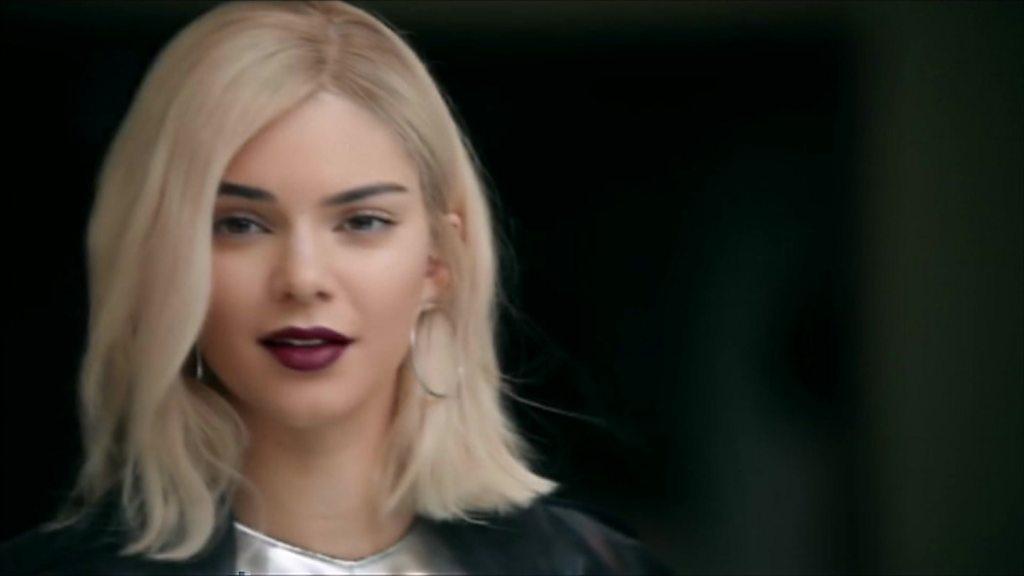
- Published21 December 2017
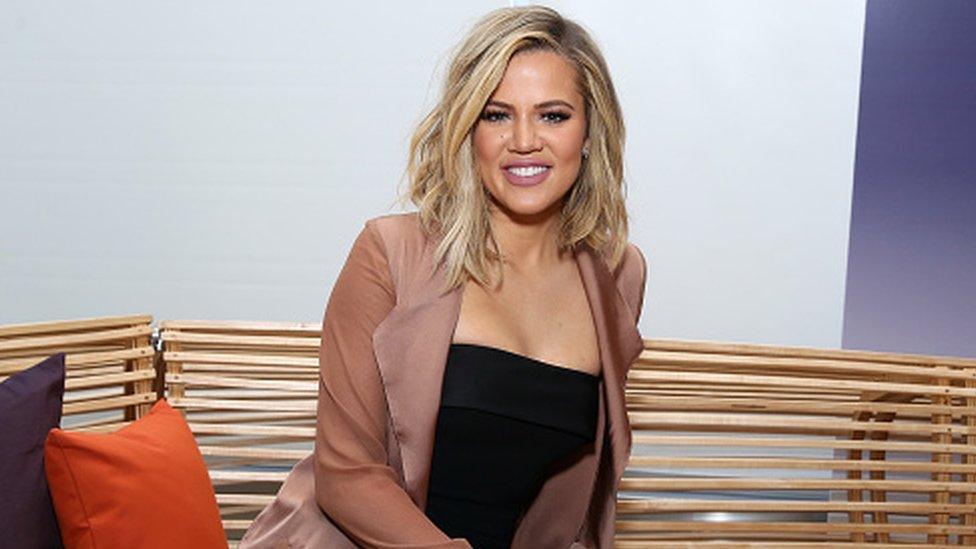
- Published8 March 2018
